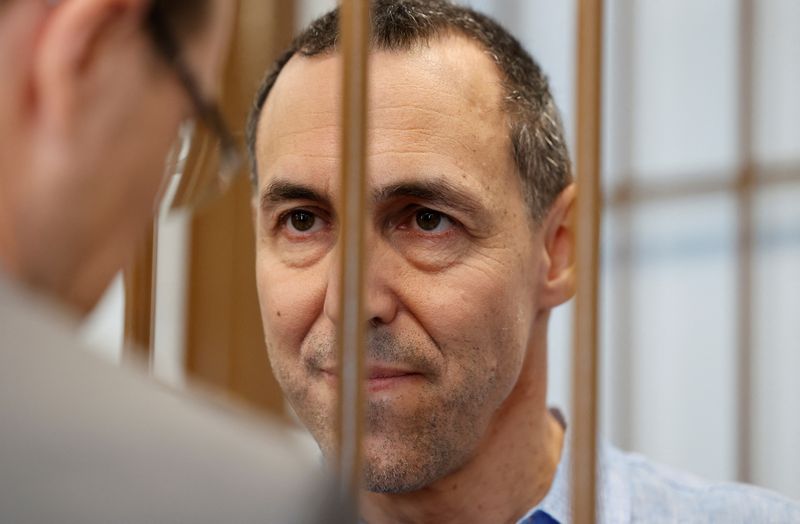MOSCOW (Reuters) - Laurent Vinatier, a French researcher accused of breaking Russia's "foreign agent" laws, pleaded guilty at a trial on Monday and is now in line to receive a lighter sentence, Russian state media said.
State news agency RIA said the Moscow district court where Vinatier is being tried agreed to consider his case under a special regime, which guarantees a lighter sentence.
RIA said the special procedure meant the punishment could not exceed two-thirds of the maximum five-year term for the offence, meaning Vinatier could end up with a sentence of just over three years at most.
Vinatier, a longtime researcher on the former Soviet Union, was arrested in June by the FSB security service and accused of failing to register as a "foreign agent" in Russia while collecting military information of value to foreign intelligence.
France says Vinatier, 48, has been arbitrarily detained and has called for his immediate release.
Vinatier's trial is taking place as relations between Moscow and Paris have reached a nadir over the arrest of Russian-born tech entrepreneur Pavel Durov, founder of the Telegram messaging app, in France last month.
France had previously arrested several Russian nationals in Paris in the run-up to the 2024 Olympic Games this summer, accusing Russia of trying to destabilise the event.
Independent news site Mediazona said the case against Vinatier stemmed from meetings he held with three Russians between April 2021 and August 2022.
'FOREIGN AGENT' LEGAL OBLIGATION
In the meetings, Vinatier collected data "about the mobilisation, combat training of troops" and other information relating to Russian national security, Mediazona cited the indictment as saying.
The indictment says Vinatier asked one of the Russians - whom the outlet did not name - "about the deployment of Russian troops on the borders of Ukraine", according to Mediazona.
Reuters was not able to obtain a copy of the indictment.
Russia's Investigative Committee, which handles serious crimes, said Vinatier was suspected of having "purposefully collected information in the field of military and military-technical activities" which could be used against the security of the state.
Under Russian law, a person is obliged to contact the justice ministry and register as a foreign agent if they are involved in political activity or collecting military information while receiving financial or other help from abroad.
Russia has applied the "foreign agent" label widely in the past decade to stifle opposition and discredit opposition figures, journalists and organisations critical of the Kremlin.

Vinatier specialises in Russia, the Caucasus and Central Asia and has worked for the past 10 years for the Center for Humanitarian Dialogue, a Swiss-based conflict mediation organisation.
Fellow academics who know him told Reuters he is a respected scholar involved in legitimate research.